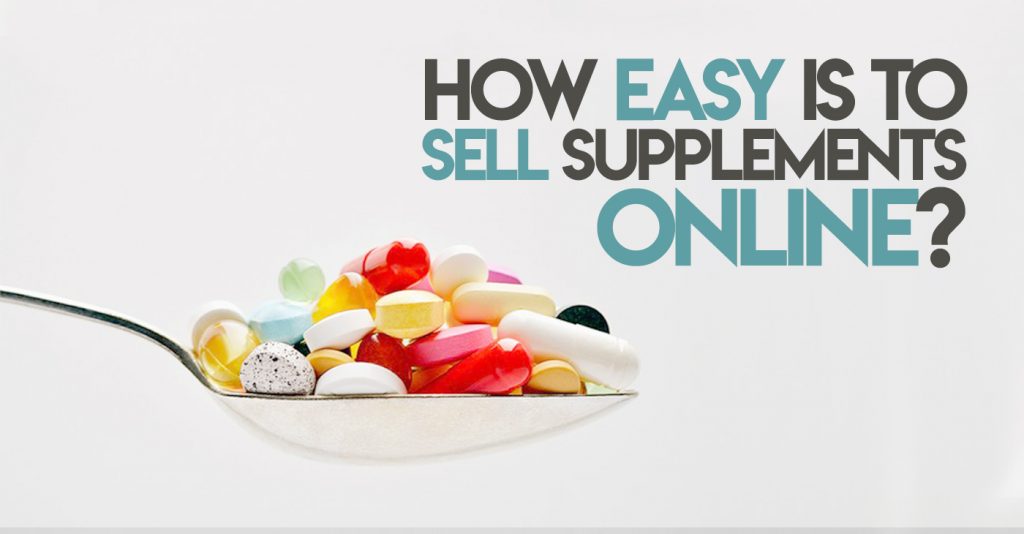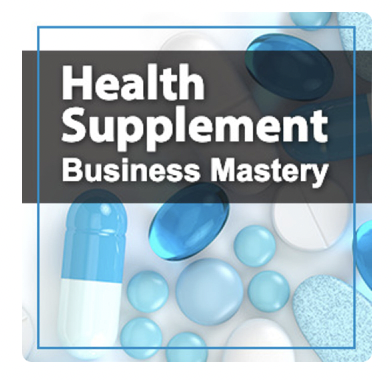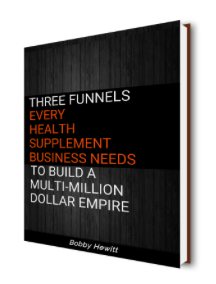
Are Some Supplements Easier To Sell Online?
If a problem causes enough “pain”, then the answer is – Yes… Some supplements are easier to sell.
Simply because some problems are more “painful” than others.
Not just physically painful, but emotionally painful.
For example, the pain of losing your independence, or your vision, or mobility.
Painful in the way that it’s effecting other areas of your life, like energy, self esteem or quality of sleep.
It may be painful to think about. Dangerous life threatening situations fall into this category.
Like high blood pressure.
It doesn’t feel like threatening enough to feel dangerous so people often dismiss it. Choosing not to think about it at all. They just keep taking that little pill from the doctor, and choose not to worry.
This is the big difference between prevention selling and problem solving selling.
From a marketing perspective, wellness is harder to sell compared to when you already have a problem.
One sale is more urgent.
The other sale is for something that we don’t want to think about. We’d rather believe that it might not happen to us.
It’s tougher because, it makes us uncomfortable to even think about the situation, so we shut down.
Avoiding the sale, because the purchase itself is “painful”
The more urgent the problem the more someone is willing to spend money to fix it.
But in order to help solve any problem, you need to sell it first.
To do that, you need someone to buy into the solution. They need to believe it can help them.
Belief is one of the core forces that drive how people buy supplements.
The more the problem resonates with us, the more likely we are to solve the problem. We are more likely to buy a solution if it lines up with our Desire, Hope, Trust and Belief. Those are the forces that make up the push and pull of the supplement buying forces framework.
Plain and simple, people are hard wired to pay more attention to problems than solutions.
And they may be more apt to ignore it if the problems are…
Annoyingly Painful
Some problems have symptoms such as a nagging kink in your neck, that aren’t so bad.
The kink comes and goes but it never stays for more than a few days and it does not stop you from participating in your life, so you ignore it.
Unconsciously you don’t want to face the possibility of a worse underlying condition.
Non-chronic
We hate facing harsh truths.
They add emotional pain on top of an injured physical condition.
So as a way to protect ourselves, we bargain down the severity of the condition in our own head. Sometimes pretending there is no problem at all.
Symptomatic
The problem needs to be visible.
The symptoms need to be getting worse to even have a chance at getting our attention.
Symptoms that are consistent feel a lot less urgent for us to want to fix because it becomes the new norm, slowly over time.
This situation requires more effort to sell a solution.
In Our Control
No one likes to think of themselves as helpless. They want to feel empowered.
The stronger the belief around a certain solution, the more likely it is that people will want a solution.
Aligning your marketing lead with the prospects existing beliefs that they are in control opens them up to your solution.
Not Solvable
If a problem doesn’t feel solvable by your prospect, they are less likely to give their attention to it.
This is why it’s so difficult to often break through the clutter with a dietary supplement product. And why direct response marketers lead with a hook before the solution.
Selling a solution to a “pain” is a lot easier than selling wellness.
If you’re selling a problem it’s really tempting to point out how irrational all of our instincts are when it comes to finding a solution.
Therefore you’d be better off to re-frame the problem with a story that resonates with your prospect by tapping into their Desires, Hopes, Trust and Beliefs.
Those core elements – desire, hope, trust and belief – make up what I call the dietary supplement decision-making framework. Which is at the center of how we approach the problem of selling supplements online for our clients. To learn more about my process, click here.
Discover the 3 funnels that can help your health supplement business succeed.

Listen to the Health Supplement Business Mastery Podcast for for dietary supplement entrepreneurs and marketers.




Supplements can be sold online generally because, yes, they solve problems as you outlined above, but also as people do not need to know tangibles such as feel, size etc.
There are a lot of shonky providers out there though so proving that the product is legit and not a risk to health is a must.
Paul